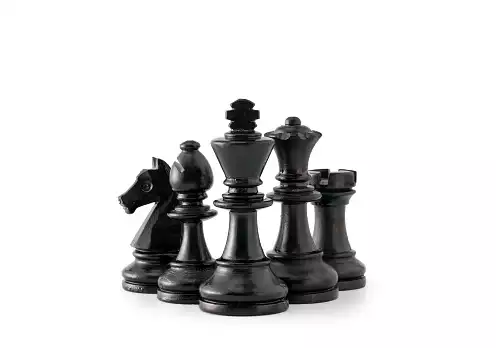
From my perspective, public libraries and chess have always been intertwined. When I was a young child, my father, who loved reading, took me to our local public library on Saturday mornings to explore the stacks. I think that initiated my lifelong love of books and sparked my natural curiosity. When I was about 11 years old, I became intrigued with playing chess, and since no one in my family, or neighborhood played, I was on my own in figuring out how it all worked. So, of course, I turned to library books to learn the basics.
All these years later, as public libraries have expanded beyond collections to offering a variety of programming and events for the community, learning to play chess in the library has also expanded beyond finding instructional books on the shelves to live action. As the library’s Head of Youth Services, it has been incredibly rewarding to see people enjoying the library to gather and play chess. From informal pickup matches and events with grandmasters like Susan Polgar to instructors who have led both beginner and more advanced workshops for children, these programs all influence others who observe and are inspired to play, too.
Getting better at playing chess is determined by practice, access, and opportunity to play. To support this idea, beginning in January, the library will return to offering in-person instruction to children, with monthly sessions provided by Diplomat Chess, an organization that partners with elementary schools to run after school chess clubs, tournaments, and summer camps. Diplomat Chess owner Robert “Rob” Lazorchak will be leading the sessions. Rob holds a Master’s Degree in Education and also teaches curriculum chess classes at Chatham Day and Princeton Day Schools. He is excited to help scholastic chess grow in our region and suggests these resources for playing and learning chess:
- ChessKid is one of our favorite sites for providing the opportunity for independent improvement where children can watch instructional videos, solve puzzles, read chess articles and play chess with kids from all over the world. If students dig into the archives, they might even find material from Coach Rob.
- Lichess.org is a great resource for adults and strong scholastic players. The site is completely free, open-sourced, and advertisement-free.
Former Princeton Public Library Chess Coach and local resident, Ben Johnson, launched the chess podcast Perpetual Chess Podcast in 2016. In the nearly five years since, he has interviewed world champions, top scholastic coaches, and other leaders in the chess community. His podcasts have been downloaded over two million times. - If you have a Princeton Public Library card, you can log into Brainfuse for live chess tutoring as part of the Help Now program.
While chess is not necessarily easy to learn, it has become easier to find a way to learn, especially through the resources at the library. It is worth the effort. Consider making the move to adding it to your to-do list for 2022.
